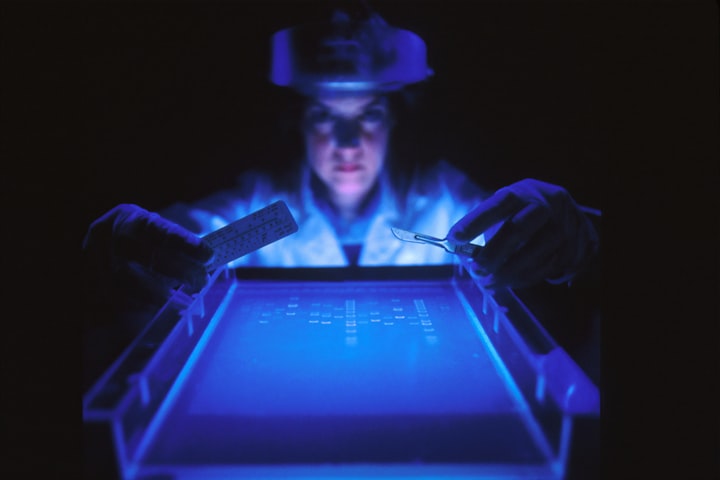Should testing on animals be legal?
Should testing on animals be legal?

In the United States, we are working to pass the Humane Cosmetics Act - a provincial law that may prohibit animal testing of cosmetics and the sale of animal-tested cosmetics. The FDA supports the development and use of other comprehensive animal tests, adherence to available human approaches, and the limitations of animal science skills used to test the safety of cosmetic products. We teach consumers how animals are used for malicious and unwanted cosmetic tests and how to buy malicious cosmetics and self-care products.
When animals are subject to severe pain, suffering, and death when used in cosmetic laboratory tests, animal research should be stopped to prevent further deterioration of animal health. There is a moral obligation to change some of the unreliable animal safety tests, not only on animal welfare but also on humans.
One way is to use animals in the laboratory to test new drugs in humans. However, it can be difficult for researchers to find willing volunteers who can provide informed consent, and those who participate in testing new drugs should not be tested in animals. The discontinuation of veterinary research is wrong, as it influences the development of new knowledge that can be used to treat health conditions that need to be treated.
With the problems that exist when scientists add species to humans, I think there are good scientific reasons to allow human studies. Animal experiments, whether in medical research or in cosmetics tests, cannot be justified by the fact that animals are listed below the humans in the evolutionary chart or that they are similar to humans in many respects.
Animals do not have many of the most common human infections, such as severe heart disease, multiple cancers, HIV, Parkinson's disease, and schizophrenia. However, symptoms of these diseases can be produced in animals in the laboratory to mimic human diseases.
This allows researchers to develop countless species of mammals that would be difficult to study in mice. Animal testing is also used in other areas of research, such as cell culture and computer modeling, as well as in human clinical trials.
Animal species also help researchers experiment with new therapies in ways that are impossible for humans. Animal testing can eliminate drugs that can be effective or harmful to humans. Other research methods, such as the study of human cells and tissues in petroleum vessels, offer the opportunity to reduce or replace animal experiments.
To protect the human, animal, and environmental safety, new drugs must be tested by researchers to measure the beneficial and harmful effects of compounds throughout the body. We can confirm that the risk of the drug is identified and reduced by animal testing before testing in human clinical trials.
All medicines, cosmetics, medicines, and other products tested in humans are tested by a series of animals. Some medicines are tested in vitro for tissues or distant organs and tested for appropriate animal models before conducting clinical trials in humans. Some medicines are also tested in animals for safety before being used in humans.
Companies can ensure safety by introducing products that use ingredients that have a long history of safe use and that do not require further testing. If companies decide to develop and use a new ingredient, which has not been tested in their cosmetic products, they may conduct animal tests to test the safety of the ingredient.
Animal testing is the study of non-human animals for scientific research purposes. Medicines and medicines are tested in animals to ensure the safety and toxicity of the product before it is tested in humans. Animal testing help researchers find treatment and treatment for human and non-human diseases.
Animals are used to test product toxicity in laboratory research, where they are often subjected to painful and sometimes fatal tests. Animal testing not only identifies potential safety concerns but also determines the dosages to be given to volunteer patients in the first human trials.
Proponents of animal experiments say that they have helped to develop many life-saving drugs for humans and animals, that other research methods could be eliminated from biodiversity, and that stricter laws prevent animal abuse in the laboratory. When used, the FDA recommends that research experiments should remove high amounts of useful scientific data and a low number of animals and use more humane methods among scientific opportunities. Opponents of the practice argue that animal testing is inhumane and that if alternatives were available, researchers could replace animal experiments because animals are different from humans and research into them could lead to unimportant results.
The use of animal testing to test product safety has been the subject of intense debate for decades. Modern methods of testing, such as human cell testing and advanced computer models, have replaced obsolete animal testing with newer, cheaper, and more efficient methods. However, regulators and advocates for biomedical research around the world continue to emphasize the importance of animal testing in assessing public safety and undermining the power of new technologies.
About the Creator
Cs Sapkota
#Blogger





Comments
There are no comments for this story
Be the first to respond and start the conversation.